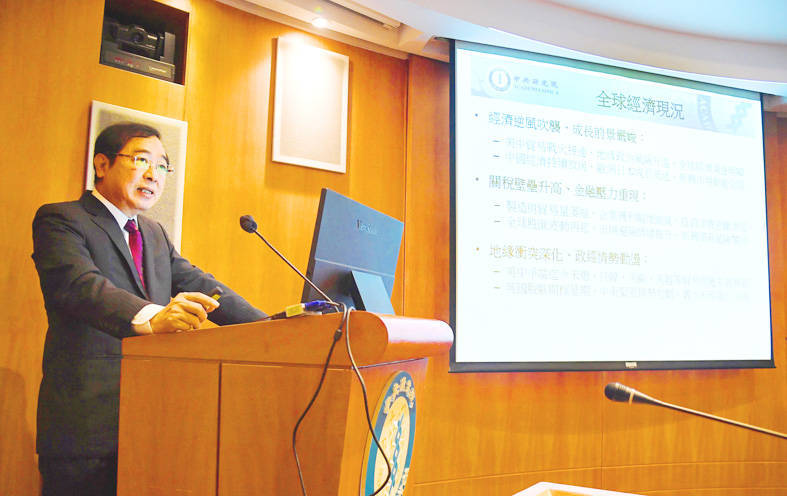《TAIPEI TIMES》 Lone institute tips 2% CPI

Academia Sinica research fellow Ray Chou speaks at a media briefing in Taipei on July 19, 2019. Photo: CNA
By Crystal Hsu / Staff reporter
The consumer price index (CPI) next year would rise above the 2 percent alert, and not decelerate as other institutes have forecast, because producers and retailers would pass mounting cost burdens on to customers, Academia Sinica said yesterday.
The inflationary gauge would be 2.04 percent next year, compared with 2.01 percent this year, as companies would boost selling prices to reflect rising costs, with the spillover effect extending to end consumers, Academia Sinica research fellow Ray Chou (周雨田) told an online news conference.
Academia Sinica is the only economic research institute in Taiwan to have forecast domestic inflation of more than 2 percent next year.
Persistently high wholesale price index readings support the view, Chou said, adding that other institutes fail to factor in housing price hikes, which would help drive up rent.
“Supply chain bottlenecks would linger and deteriorate, heaping inflation pressures on goods amid the rapid spread of virus infections caused by the Omicron variant” of SARS-CoV-2, Chou said.
Countries around the world have tightened border controls and bolstered disease containment measures as cases escalate and threaten medical capacity, he said.
Taiwanese policymakers continue to paint above-par CPI readings as transient and attributable to a low comparison base last year, he said.
They insist that things will normalize next year, even though the US Federal Reserve and the Bank of England have recognized that inflation merits monetary policy responses, he said.
Academia Sinica said that increasing home prices and payrolls would prompt landlords to raise rents.
Directorate-General of Budget, Accounting and Statistics (DGBAS) data have already showed upticks in rent rates in the past few months, it said.
A survey by Evertrust Rehouse Co (永慶房屋) found that house prices nationwide picked up by double percentage digits this quarter.
Developers have said they have to adjust prices to reflect spikes in labor, building material and land costs, while tile producer Champion Building Materials Co (冠軍建材) on Tuesday said that it would increase its prices by 8 to 15 percent.
Several restaurants and hotels, as well as manufacturers, have said that they had to take similar steps to remain profitable.
A CPI of more than 2 percent would not be all bad news, as it would foster economic expansion, Chou said.
A CPI growth figure near 1 percent would raise concerns about deflation, he said.
If the world can quickly gain control over Omicron outbreaks, uncertainty would subside, he said.
Academia Sinica projected that GDP growth would moderate to 3.85 percent next year, from an estimated 6.04 percent this year, due to a high comparison base this year.
The 3.85 percent projection is a conservative estimate compared with the 4.15 percent forecast by the DGBAS and the central bank’s 4.03 percent, while the latest GDP growth forecasts by major domestic think tanks were all above 4 percent.
Additional reporting by CNA
新聞來源:TAIPEI TIMES


















